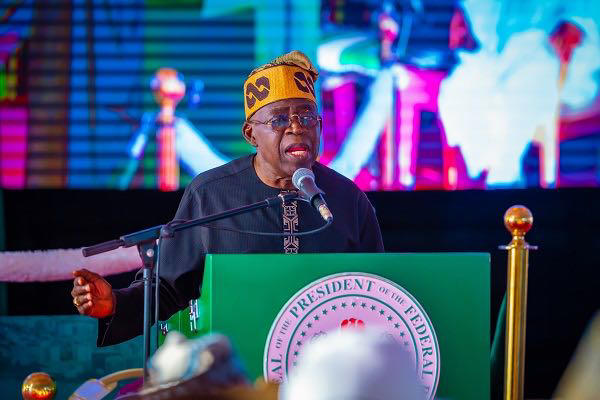President Tinubu To Judiciary: Anti-graft War Won’t Be Won By Technicalities, Frivolous Appeals

President Bola Ahmed Tinubu has identified frivolous appeals, alleged intimidation of judges by lawyers and judgments delivered on grounds of technicalities as some of the major challenges impeding the war against corruption in Nigeria.
According to him, until these challenges are curtailed, they will continue to hamper the speedy adjudication of corruption cases.
President Tinubu who spoke on Monday while declaring open the 6th Economic and Financial Crimes Commission/National Judicial Institute Capacity Building Workshop for Justices and Judges at the National Judicial Institute (NJI), Abuja, however, acknowledged that prosecution of corruption cases has improved remarkably, following the justice sector reforms in the last few years.
Represented at the event by his deputy, Vice President Kashim Shettima, the President described the capacity-building workshop as a platform to collectively raise a strong voice against Nigeria’s common enemy called corruption.
VP Shettima, while delivering the President’s speech at the event, said there is no gainsaying the fact that the judiciary is central to the success of the anticorruption efforts.
He said commitment, courage and patriotism of judicial officers are ingredients that make the difference in the fight against corruption.
President Tinubu pointed out that “no Nigerian is immune to corruption, a cancer which continues to deny the nation the full benefits of her God-given resources,” even as he maintained that only the enlightened collective interest of all Nigerians “to close ranks and aggressively tackle this common enemy” can make the difference, instead of looking up “to only the Anti-Corruption Agencies for solutions to this malaise.”
He urged the judiciary arm of government to ensure that the courts are equipped with the required knowledge to handle cases involving these new forms of crime.
Earlier in her address, the Chief Justice of Nigeria, Hon. Justice Kudirat Kekere-Ekun, commended the efforts of the current leadership of anti-graft agencies in the country for their commitment and collaboration with the judiciary in handling economic, financial crimes and related cases, noting that law enforcement agencies must begin to see judicial officials as partners in the anti-graft campaign in Nigeria.
She pledged the support and commitment of the judiciary in the campaign through capacity-building initiatives for justices, judges and prosecuting officers, stating that economic and financial crimes pose significant threats to national and global economies and must be tackled by all stakeholders.
Leaders of the National Assembly at the workshop though praised the collaboration between anti-graft agencies and the judiciary, advocated a periodic review of laws relating to economic crimes and the creation of a central database for use by law enforcement agencies, maintaining that the complexity of financial crimes requires constant tweaking of the laws.
They however described the workshop as a significant step in the Tinubu administration’s efforts aimed at combating economic and financial crimes, emphasizing that competence must be at the forefront of the reinvigorated war against corruption in Nigeria.
Other speakers at the event, proposed the adoption of a multifaceted approach in the fight against graft in Nigeria, calling for reorientation among citizens and in key government agencies to confront the dimension of the crime across the country.
In all, the speakers at the workshop agreed that a judicial reforms and reorientation within the country are key to addressing thorny issues in the country’s efforts to rid the country of corruption and other financial crimes.





